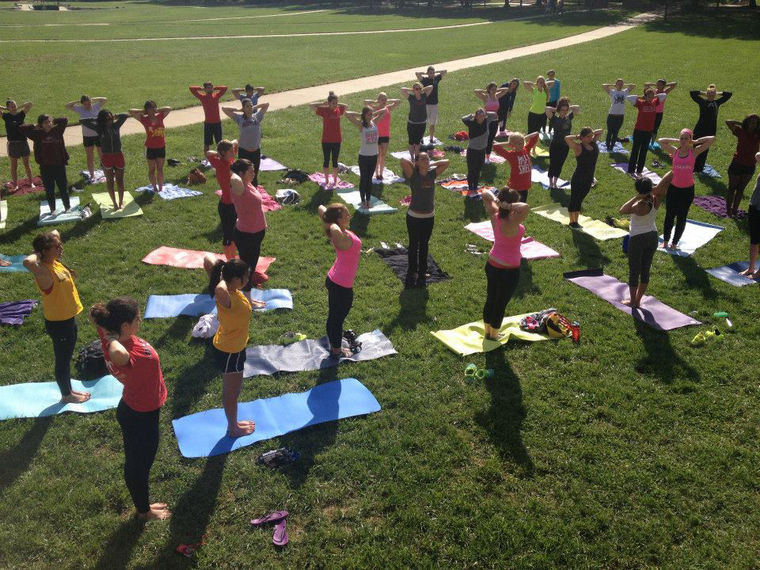As you are likely (and painfully) aware, the end of the semester is near, which can mean only one thing: It’s finals week.
Maybe you have assignments instead of exams and you’re largely out of the woods. Maybe you have four tests this week and your body feels like it’s on fire. I don’t know your life, but either way, there’s no better time than the present to try out meditation, one of humanity’s oldest ways to deal with stress.
Likely originating thousands of years ago in India, meditation encompasses various techniques, such as deep breathing, that aim to calm the mind and reduce anxiety. As the number of self-identified “spiritual” Americans rises, the practice is gaining quickly traction in this country.
But it’s not all just flowery, new-age talk. A recent PLOS ONE study found that daily meditation can help reduce blood pressure. Another study, from researchers at the Wake Forest Baptist Medical Center, suggested it’s a more effective pain reliever than morphine. If that isn’t enough, one other study from the University of Sussex dug up evidence that meditation can even diminish racial prejudices.
The benefits of meditation are nothing new for junior elementary education major Dean Kaplan, a yoga instructor at Eppley Recreation Center. Many parts of yoga and meditation are intertwined, Kaplan said, including asana — the physical posture associated with meditation — and pranayama, which means breathwork.
Not only will mastering those skills aid in reducing anxiety, Kaplan said, but it can also increase your mental capacity right in time for that big test you have coming up.
“When we are stressed, much of the resources of the brain and mind are reallocated to fight-or-flight mode,” he said, “which is very helpful if you’re being chased by tigers but not so helpful if you’re trying to focus.”
Geography graduate student Suzanne Marselis first discovered meditation on a farm in Bulgaria when she was 14 years old. Over the years, Marselis said, the practice has taught her two things: “that in the moment, things can be very quiet” and that setting out time for yourself can help you see the big picture.
“It makes people realize that finals are really not that important, or at least that’s what it does to me,” she said. “It makes me realize that out of everything people stress about so much, what I stress about is actually not of any importance in any way.”
A middle school counselor introduced junior Emma Ebeling to meditation as a way to cope with anxiety attacks. Since then, it’s been a beneficial tool for the communications major as she deals with the rigors of this university, and something she would suggest to fellow Terps as the most stressful week of the semester looms large.
Meditation “is a way for students to just forget about all the tests and exams and really take a break to focus on mental health,” Ebeling said. “It’s just like taking a breath to calm yourself and feel better about yourself, instead of letting your mind just rot.”
One group devoted to the ancient, often Buddhist-associated practice is this university’s Meditation Club. Junior psychology major Michelle Zavalij, a member of the club, attributes her newfound spirituality and passion for meditation to the organization and those in it.
“Every Wednesday this guy named James comes in, and he’s like a monk in training,” Zavalij said. “He really opened up my eyes to a lot of new things … [and] he brings up good meditation exercises to help you with stress and focus on the big picture instead of teeny things that bring you down.”
Kaplan suggests first-time meditators try it for just 10 minutes a day. Even if you start out with short and slow sessions, he said, the benefits of meditating, both for test anxiety and life in general, will soon become tangible.
“Some people will claim that the stress is helpful for meeting a deadline or finishing up the last part of the exam,” Kaplan said. “It’s not like meditation gets in the way of that edge when you’re stressed in the moment, but when you’re trying to recover, for example between tests, meditation can be really, really huge.”



